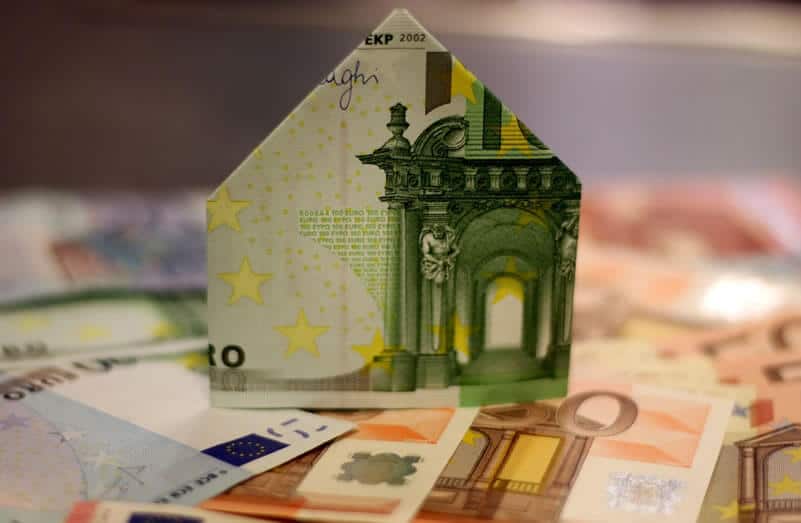What is surplus value?
.
The concept of surplus value has its origin in the labor-value theory of Karl Marx. For Marx, the labor force of the worker or proletariat, produces a surplus that is not paid to the worker, but is used by the employer to maintain the means of production. This surplus he called surplus value.
According to the Royal Academy of the Spanish Language, surplus value is the increase in the value of a good, due to causes extrinsic to it.
The tax known as capital gains tax, is regulated in the Local Treasury Regulatory Law (RDL 2/2004), and is actually levied on the increase in value of urban (not rustic) land with the passage of time, by virtue of external changes that revalue it.
Its technical name is Municipal Tax on the Increase in the Value of Urban Land and is generated when property is transferred onerously by any title (sale, inheritance), or in other cases of transmission such as dation in payment, exchanges, contributions to companies, reversion of expropriations, as well as the constitution and transmission of a real right limiting the domain, when there is an increase in land value..
The person obliged to pay the tax is the natural or legal person transferring or acquiring (as the case may be).
In a purchase sale of a real estate for example is the seller, and in an inheritance the successful bidder.

Plusvalía Municipal en España
How is the Municipal Capital Gain Tax calculated?
.
The aforementioned law establishes the mechanisms for its calculation and collection by the Town Councils and this has been exercised by them, generating many cases the payment of the capital gains tax for transactions in which there has been no increase in the value of urban land..
As we know it has given rise to jurisprudence of both the Constitutional Court and the Supreme Court, which have declared unconstitutional certain articles of this law (and therefore its application), in those cases in which the taxpayer manages to justify that there was no such increase in land value.
Thus, if the taxpayer proves that there was no increase in its value in the transaction, articles 107 1 and 2, will be unconstitutional in application to his case (STC 59/2017 of May 11), and therefore will result in the refund of the capital gain paid or that there is no such obligation to pay.
What is certain is that it is striking that the Administration continues to liquidate the tax even in these cases, being unconstitutional, forcing the taxpayer to assume this expense and the cost, in time and money, to obtain its refund.
The justification for the declaration of unconstitutionality of these articles 107 1 and 107 2, a), and 110.4 and null and void, in these cases is for violation of the principle of economic capacity of Article 31 of the Constitution.
Subsequently by STC 126/2019 of October 31, partially declared unconstitutional the 107.4, in cases where the amount of the capital gain exceeds the increase in assets obtained by the taxpayer (discounting expenses, taxes etc).
For its part the Supreme Court in its ruling on July 18, 2018, had given the reason to the Constitutional Court in the interpretation of 110.4, (and to the High Court of Justice of Aragon) considering also unconstitutional that article.
What is taken into account to calculate the capital gain?
.
To make the calculation of the municipal capital gain must be taken into account:
- The date of acquisition and date of transfer (sale, inheritance, auction etc.
- The cadastral value of the land, reflected in the receipt of the IBI (Real Estate Tax).
- The updating coefficient which is fixed by the town hall.
- The tax rate, which cannot be more than 30%.
).
Other cases in which no capital gains tax
is payable
.
- In the conjugal partnership, when common property is transferred.
- In case of divorce or separation, when the property has been transmitted to the children or to one of the spouses.
- For the gift in payment (subject to conditions)
- In the extinction of the usufruct,by death of the usufructuary.
- In Commercial Law, in cases of spin-off or merger of companies; in the transformation of partnerships, limited partnerships or limited liability companies into corporations.
- In commercial law, in cases of spin-off or merger of companies; in the transformation of partnerships, limited partnerships or limited liability companies into corporations.
- Governmental entities, such as the Spanish State, municipalities, and autonomous communities, as well as non-profit organizations, charities, social security organizations, among others, never pay capital gains.
- It is also exempt from capital gains tax.
- The transfer of real estate located in historical-artistic sites recognized as being of cultural interest, according to article 62 of Law 16/1985, of June 25, 1985, of the Spanish Historical Heritage, is also exempt.
- The contributions to management companies of assets in certain cases.
- The constitution of servitudes..
.
If you are interested in this topic of municipal capital gains, you may be interested in this post:.
Claiming municipal capital gains
.
Have you transferred a property and paid capital gains, or are you going to do it soon? Do you need legal advice?
- The partners of Lawyou specialized in tax law will be able to solve any doubt you may have, meet our lawyers.
- At LAWYOU we have lawyers with many years of experience who can help you or provide more information about the currently applicable legislation and future changes. Do not hesitate to contact us to tell us about your case through our email info@lawyoulegal.com or, if you prefer, you can also call us at 667 606 611.
.
Comentarios